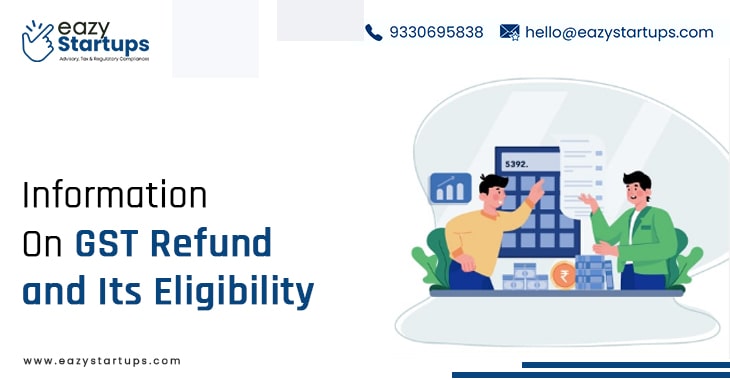The introduction of the Goods and Services Tax (GST), a comprehensive tax system, made India’s indirect tax system simpler. Despite the obvious advantages of GST for companies, small firms can find the registration process too onerous. However, GST registration can be simple if the proper knowledge and strategy are applied. The goal of this guide is to make the process easier for small businesses so they can comply with the law without having to worry about it. If you opt to apply for GST Registration Online in India or GST Filing Online, contact Eazy Startups.
Let’s delve into the discussion:-
1. Why is GST Registration Important for Small Businesses?
2. Eligibility Criteria for GST Registration
3. Documents Required for GST Registration
4. Steps to Register for GST
5. Common Issues and How to Overcome Them
6. Post-Registration Compliance
Why is GST Registration Important for Small Businesses?
Businesses with an annual turnover of more than ₹20 lakh (₹10 lakh for special category states) must register for GST. Regardless of turnover, small enterprises participating in e-commerce or interstate trade must also register. For small firms, the following are the main benefits of GST registration:
Input Tax Credit (ITC): Businesses can claim credits for taxes paid on purchases, which reduces the overall tax burden.
Legal Recognition: A registered business gains credibility, which helps build trust with customers, suppliers, and partners.
Access to Wider Markets: GST enables businesses to sell across state borders without restrictions.
Simplified Tax Structure: GST replaces various indirect taxes like VAT, service tax, and excise duty, making it easier to manage.
Eligibility Criteria for GST Registration:
Before applying for GST, it’s important to determine whether your business needs to register.
Businesses must register if:-
Their turnover exceeds the threshold amount (₹20 lakh or ₹10 lakh for specific states).
They sell or offer goods and services across state lines.
They engage in online business dealings.
They provide products or services that are subject to GST.
To profit from GST, companies with lower annual revenue might voluntarily register.
Documents Required for GST Registration:
Time can be saved, and the registration procedure can be streamlined by assembling the required paperwork beforehand.
The following documents are necessary for GST registration:-
PAN card of the company or owner.
Evidence of company registration, such as a certificate of incorporation or partnership deed.
Aadhaar card and evidence of identity for directors or owners of the company.
Proof of business address (such as a utility bill, lease, or property tax receipt).
Bank account information (bank statement or canceled check).
During the registration process, ensure that every document is scanned and easily accessible in digital format for upload.
Steps to Register for GST:
Follow these simple steps to complete GST registration:-
a. Visit the GST Portal
b. Fill out the GST Application Form
c. Upload Documents
d. Verification via OTP or DSC
e. ARN Generation
f. GSTIN Allocation
Common Issues and How to Overcome Them:
While the GST registration process is simple, small businesses may face challenges, such as:
Incomplete Documents: Ensure that all documents are correct and up-to-date before submission.
Mistakes in Application: Double-check the information entered in the application form to avoid errors.
Delayed Verification: The verification process can take some time, so plan accordingly and track your application status regularly using the ARN.
If needed, consider seeking assistance from a GST consultant or using GST registration services professionals offer.
Post-Registration Compliance:
Once registered, businesses must comply with regular GST filing requirements. This includes:
Filing GST Returns: GST returns (GSTR-1, GSTR-3B, etc.) must be filed monthly or quarterly, depending on the business type and turnover.
Tax Payment: Pay taxes on time to avoid penalties.
Maintain Records: Properly record invoices, bills, and other GST-related documents for future reference and audits.
Using accounting software can help simplify record-keeping and filing GST returns.
Conclusion
When completed properly, the simple procedure of GST registration provides small businesses with a number of advantages. If you opt to apply for GST Registration Online in India or GST Filing Online, contact Eazy Startups.











Recent Comments